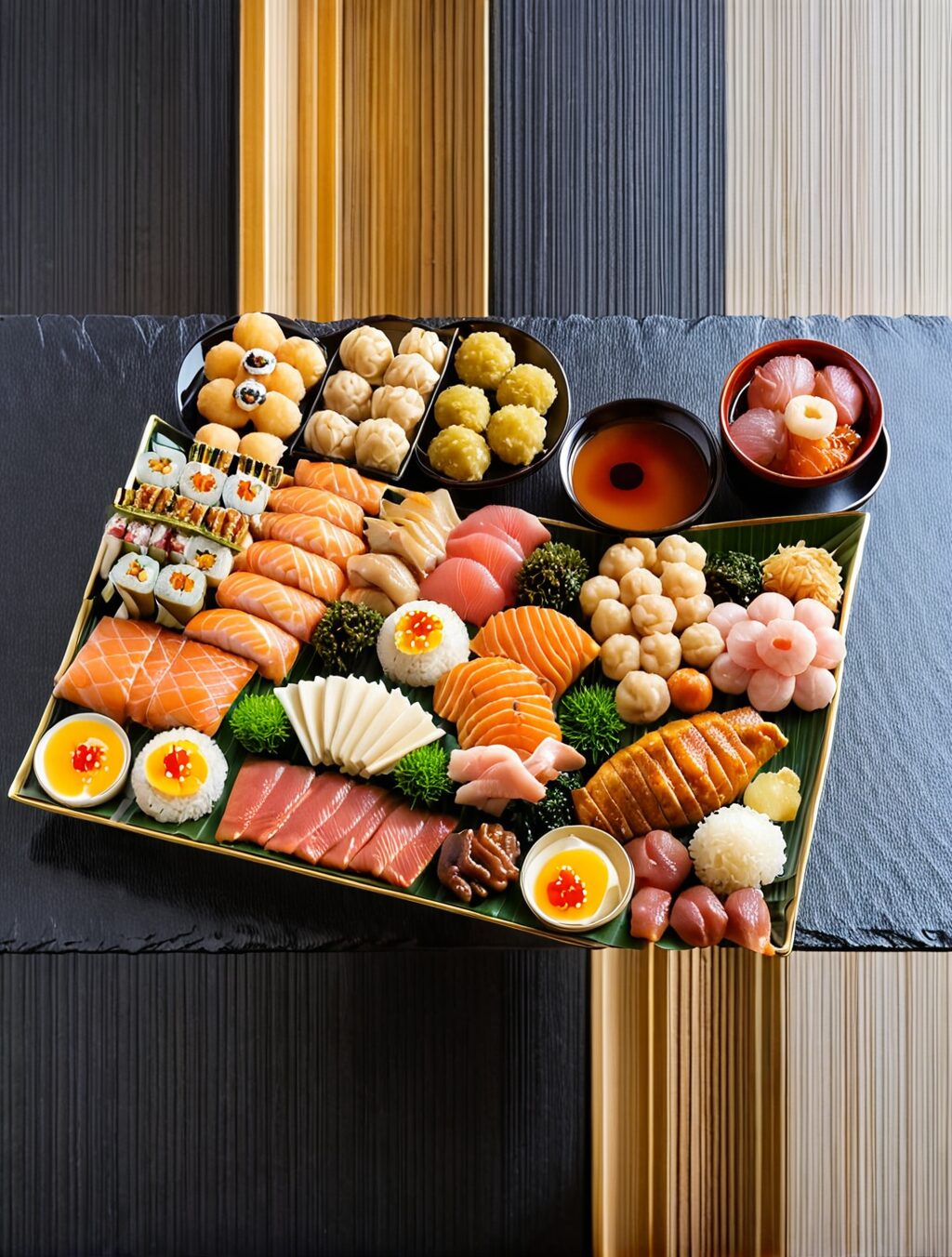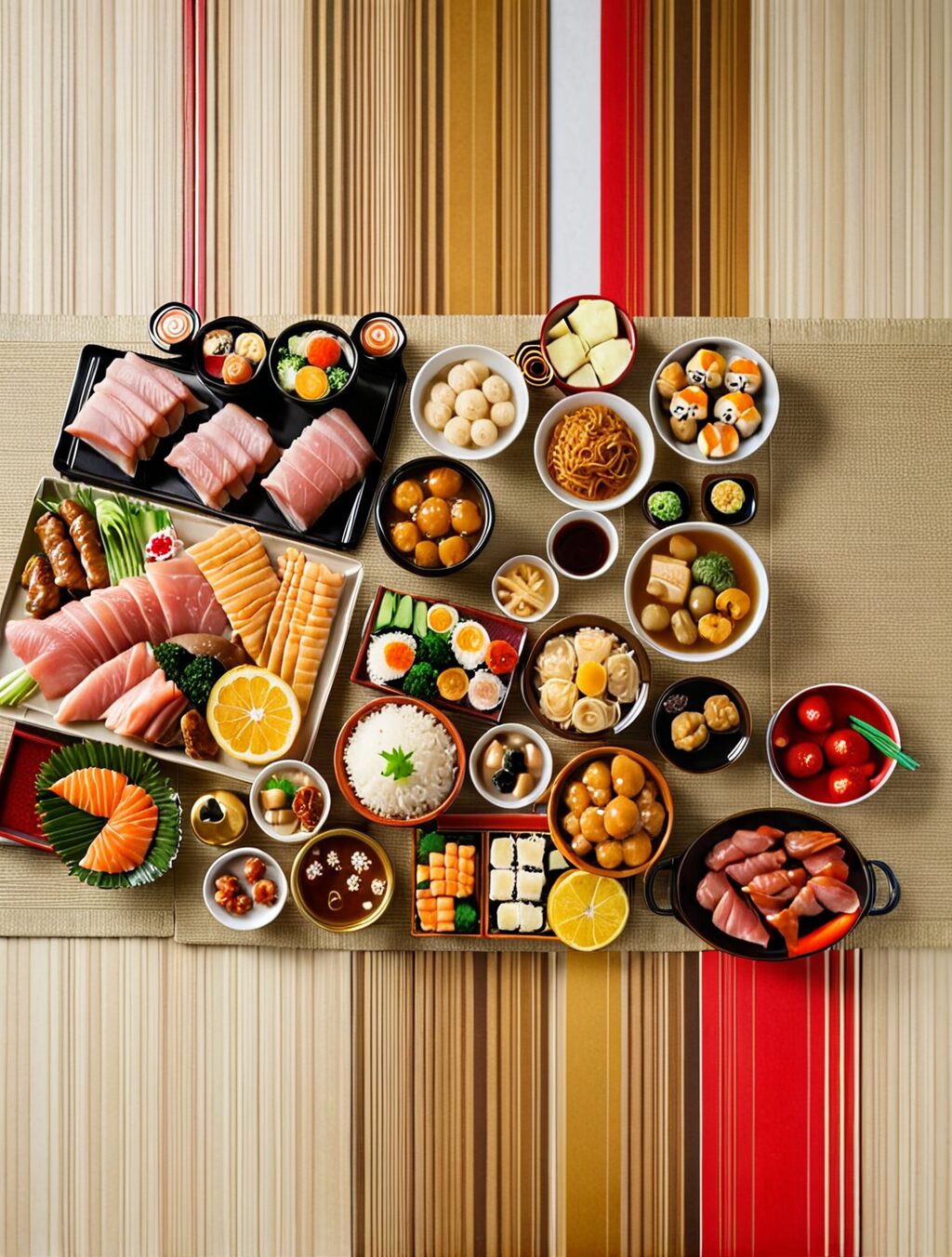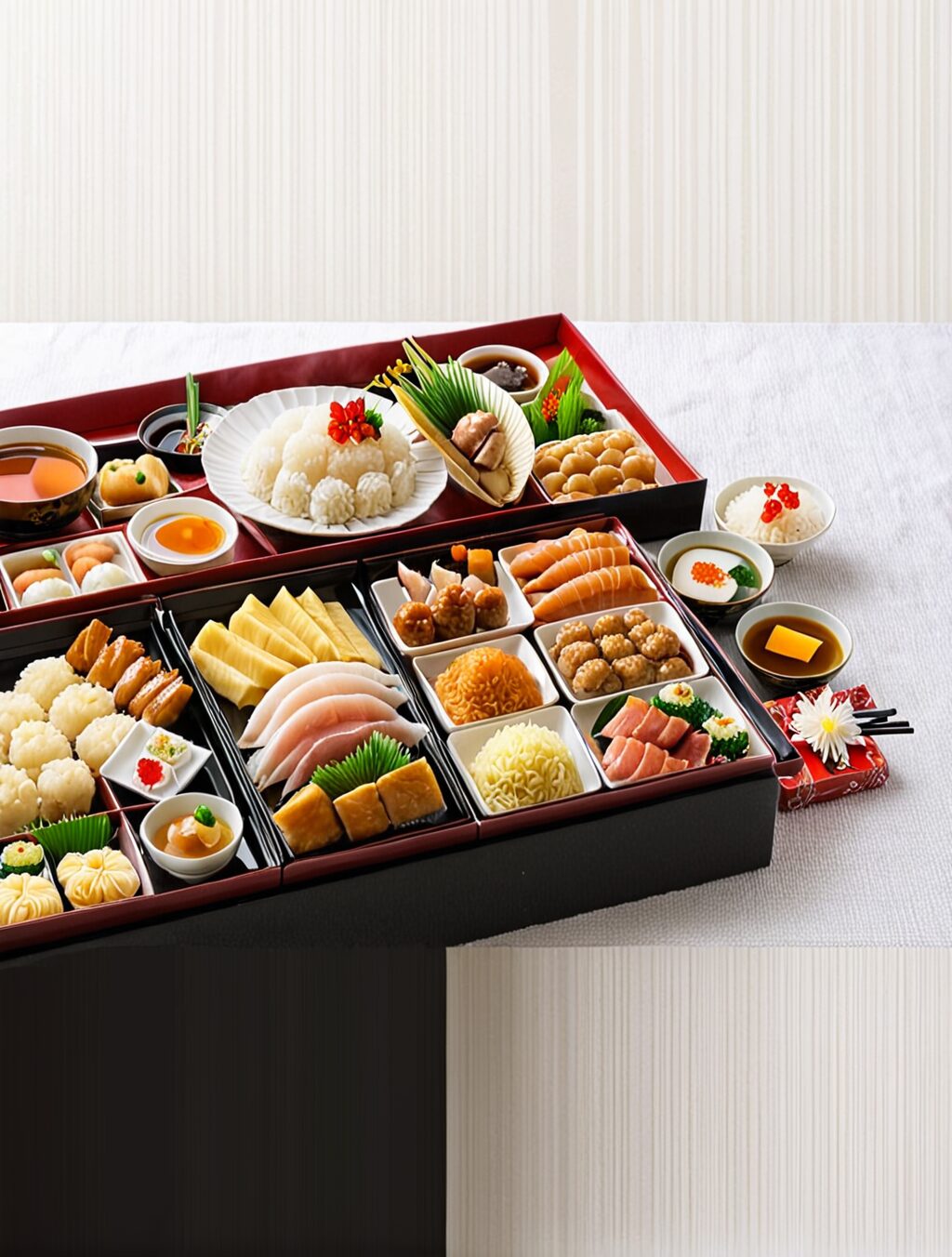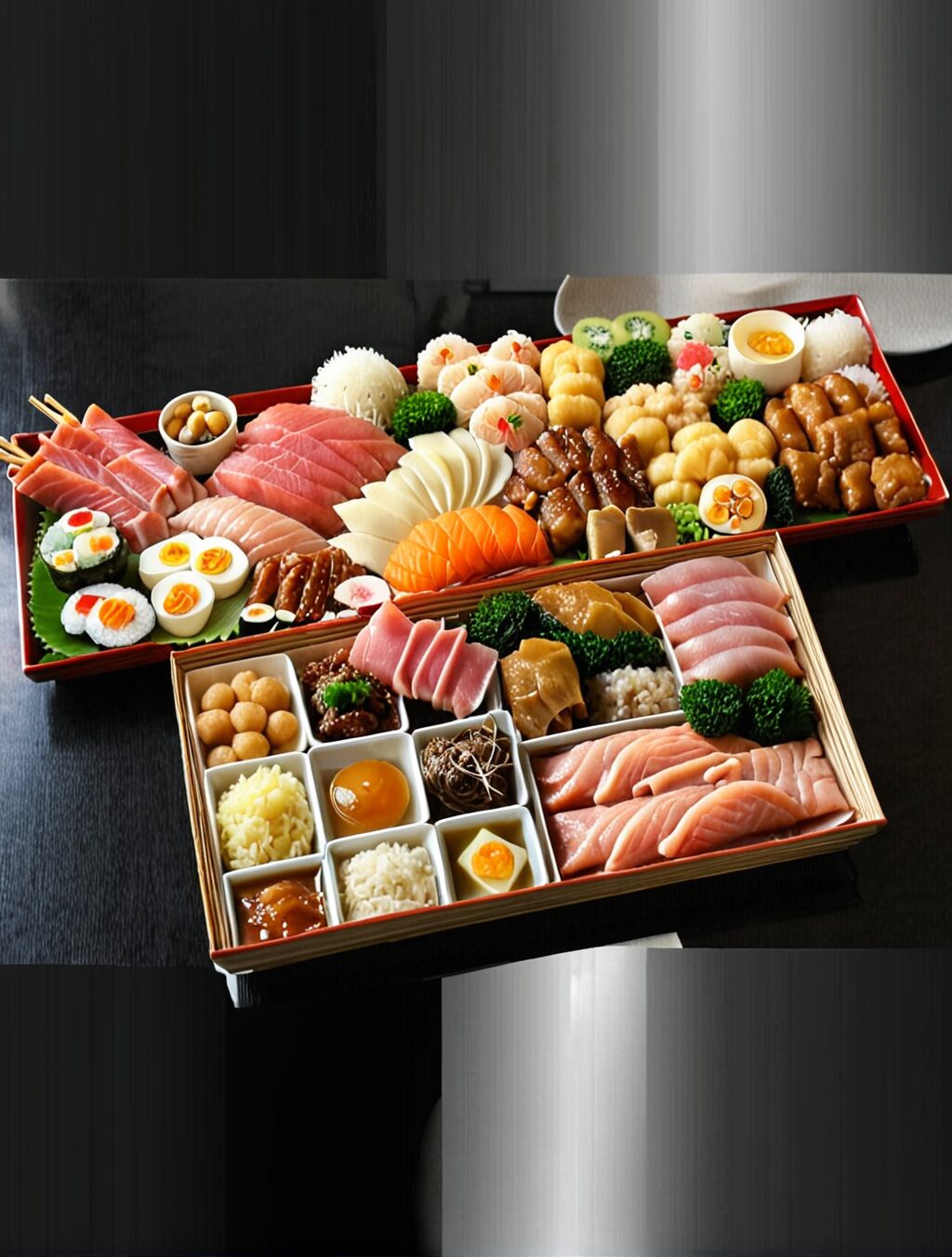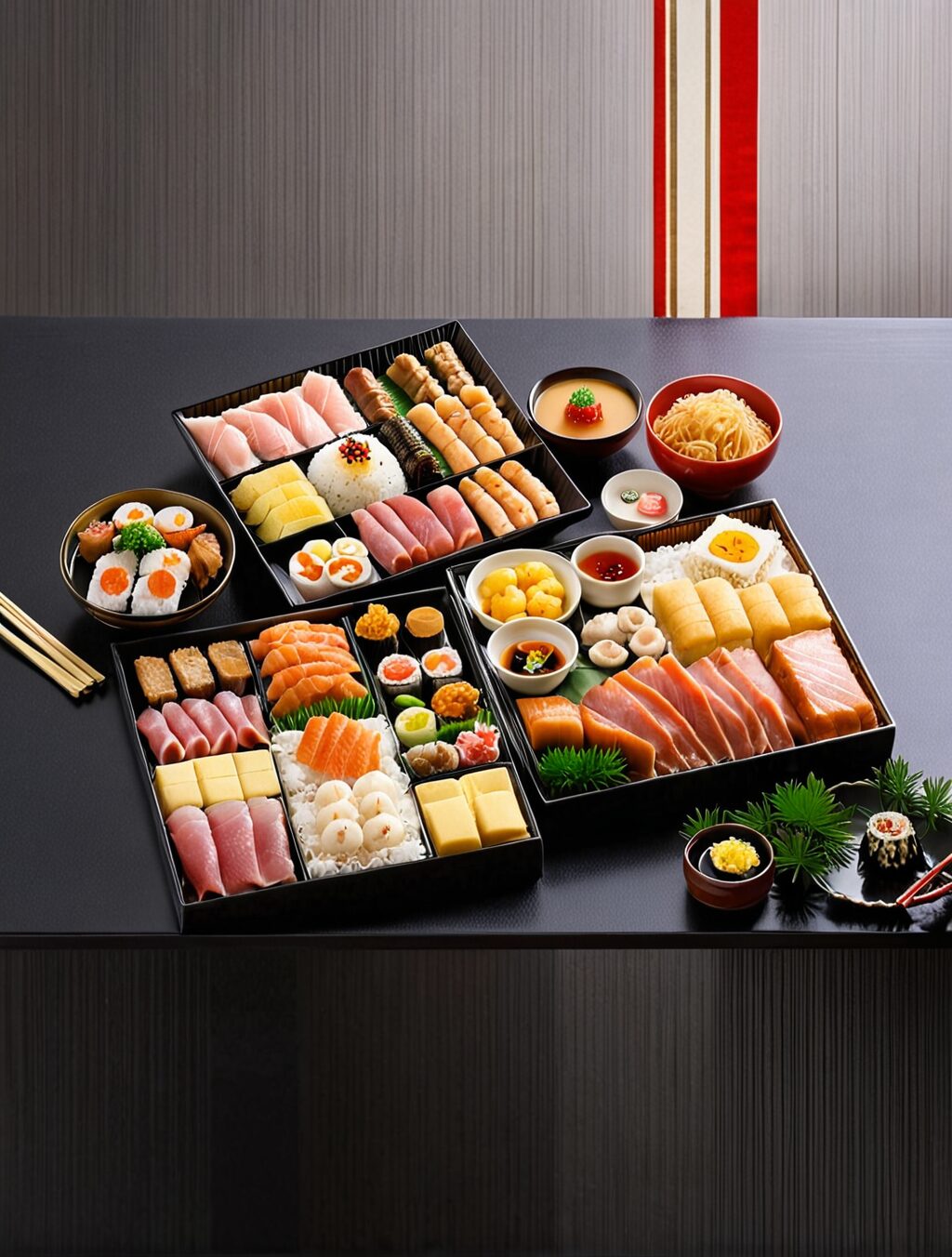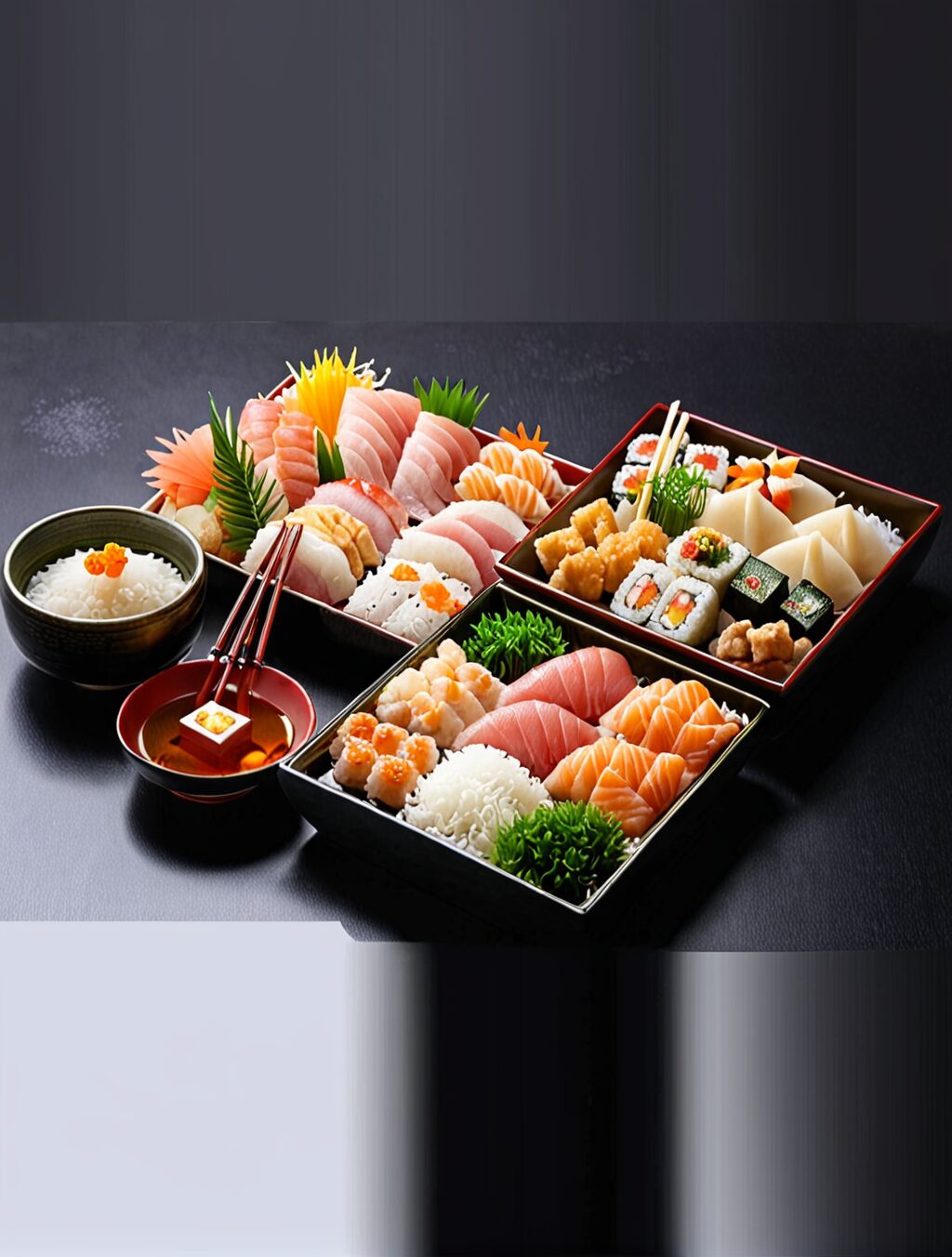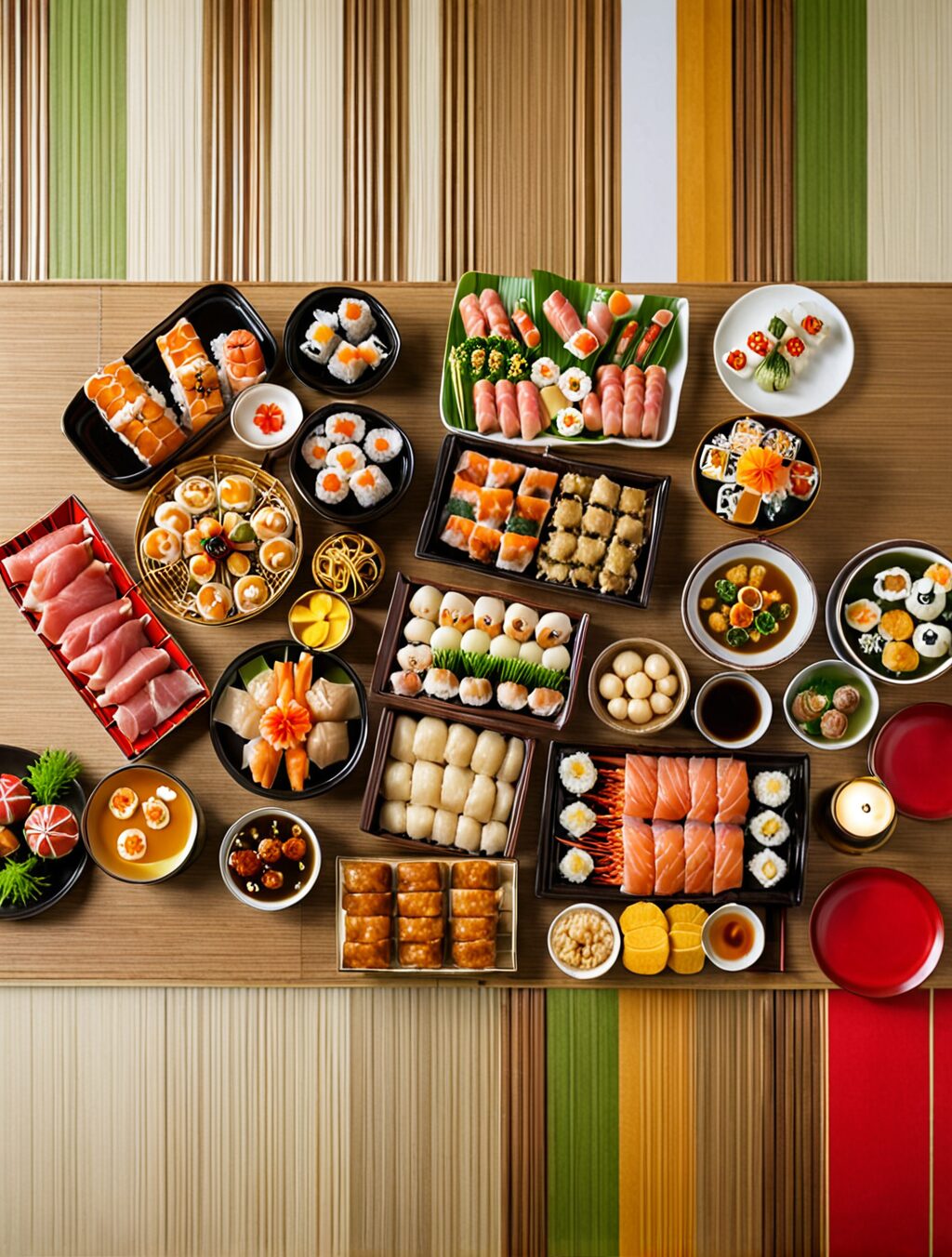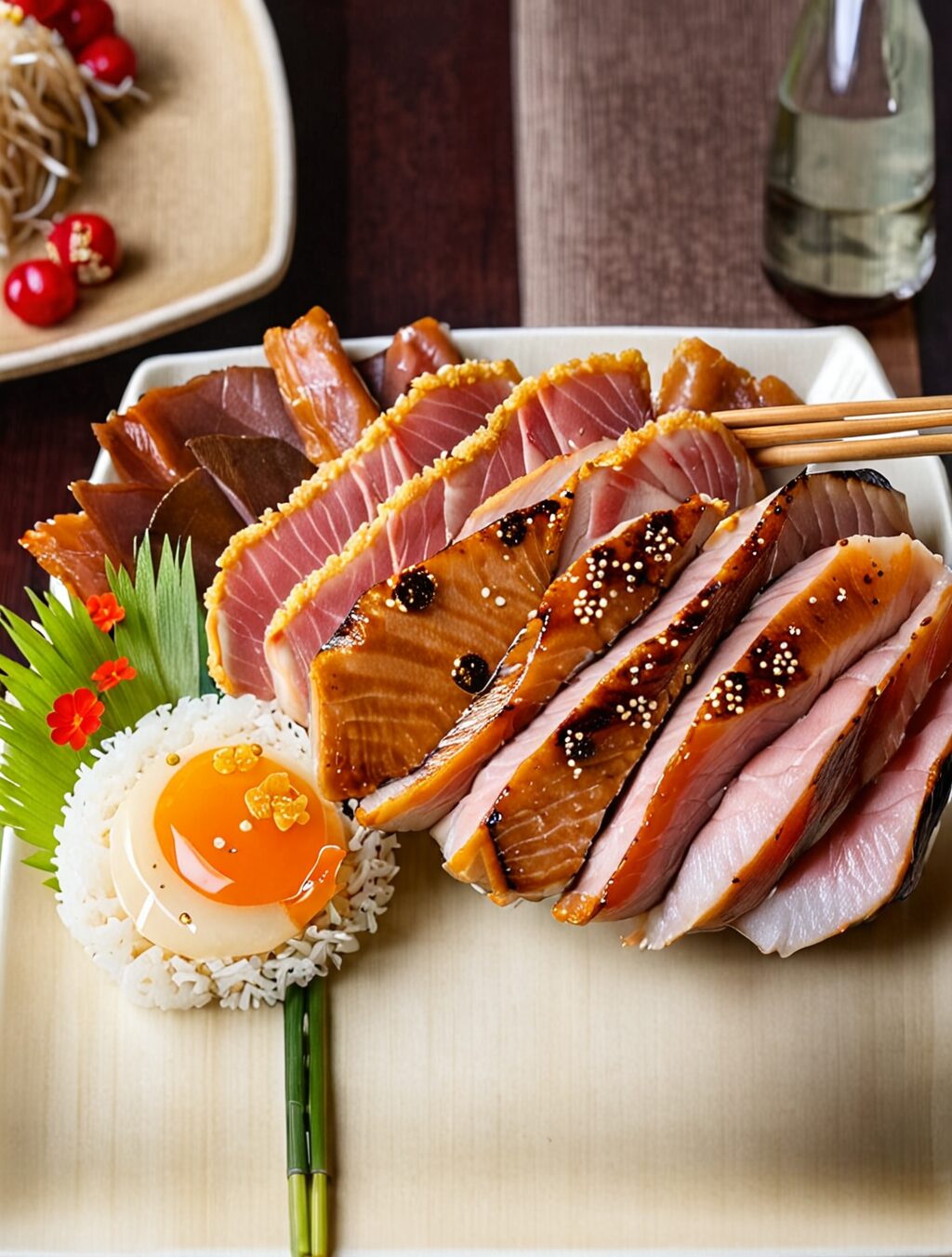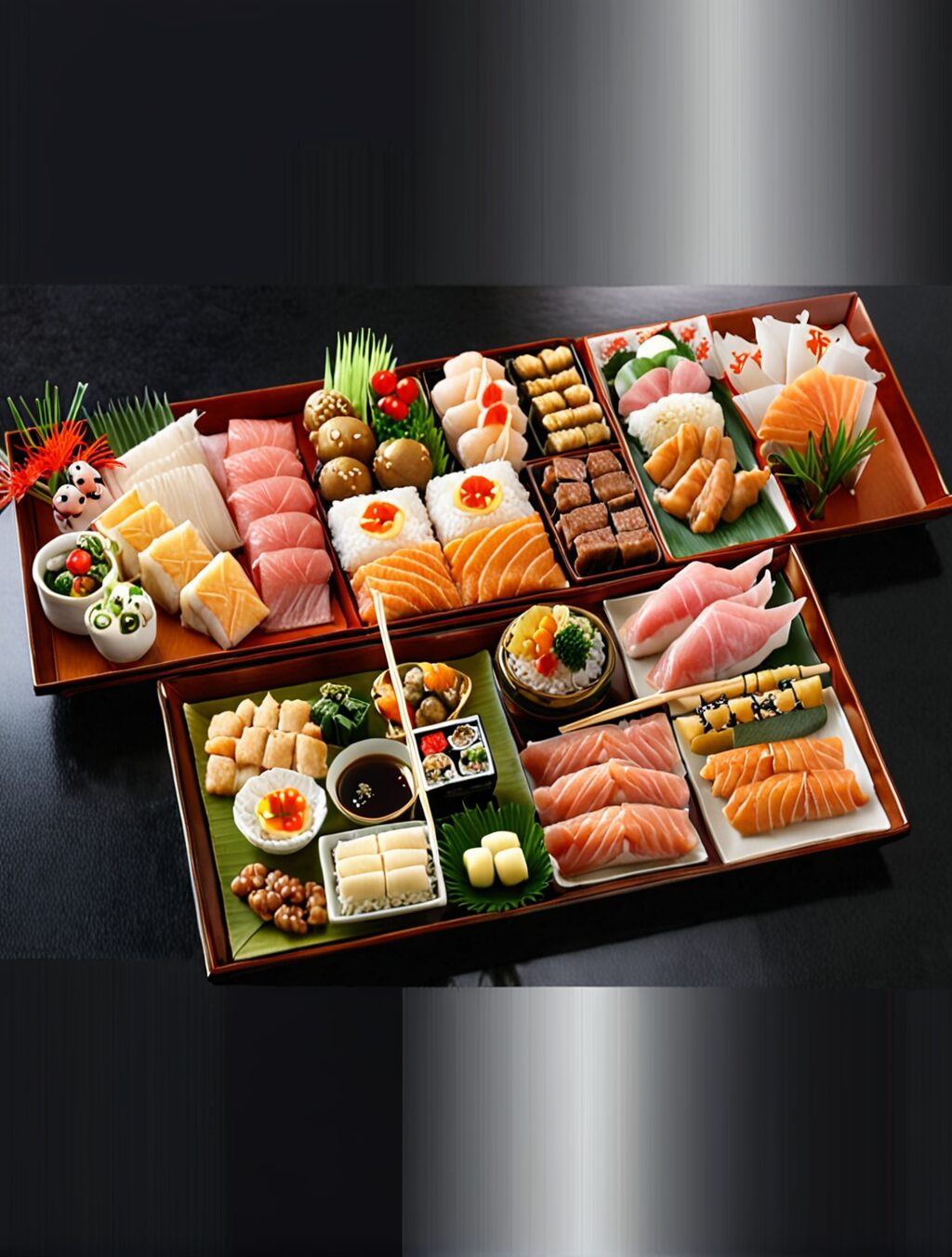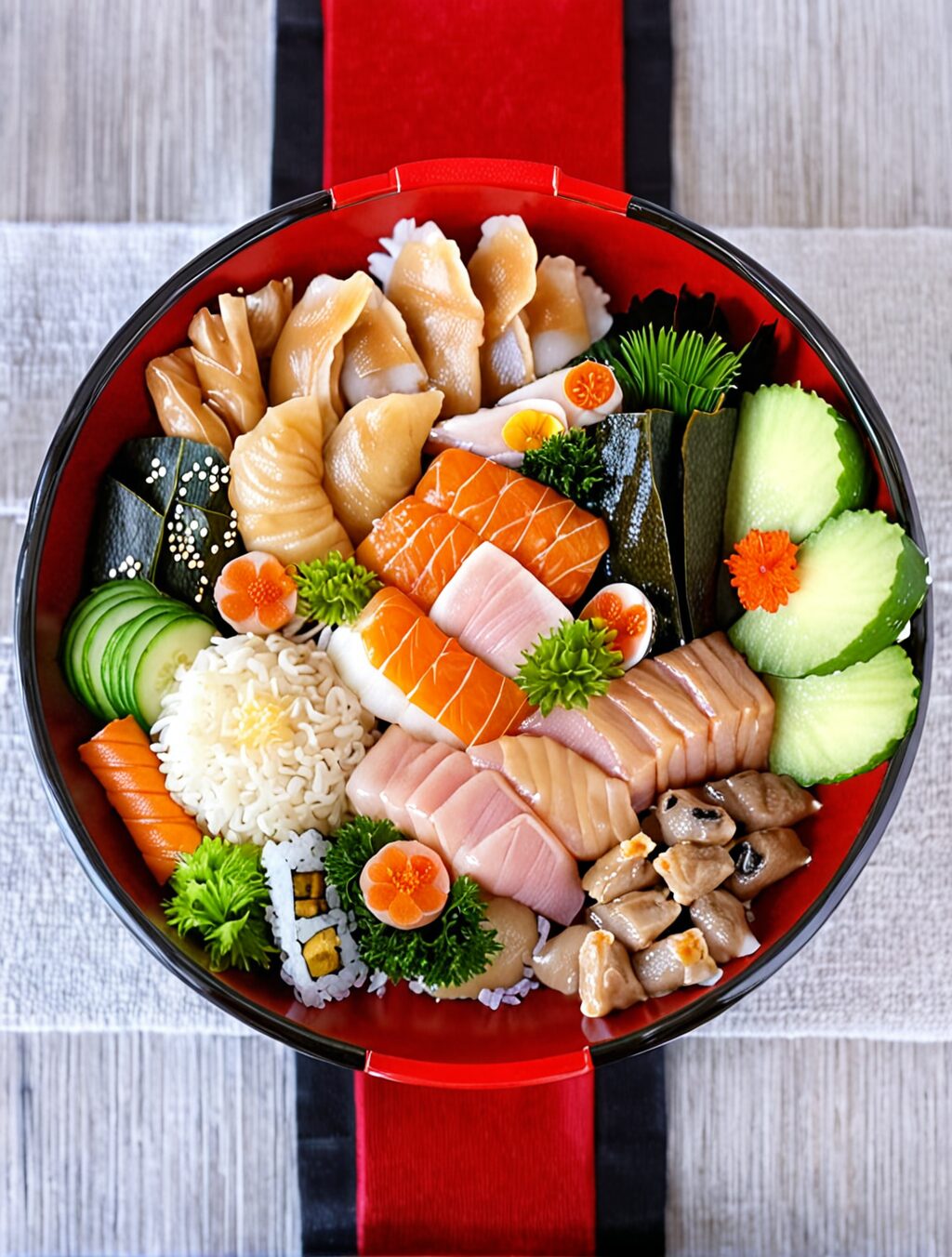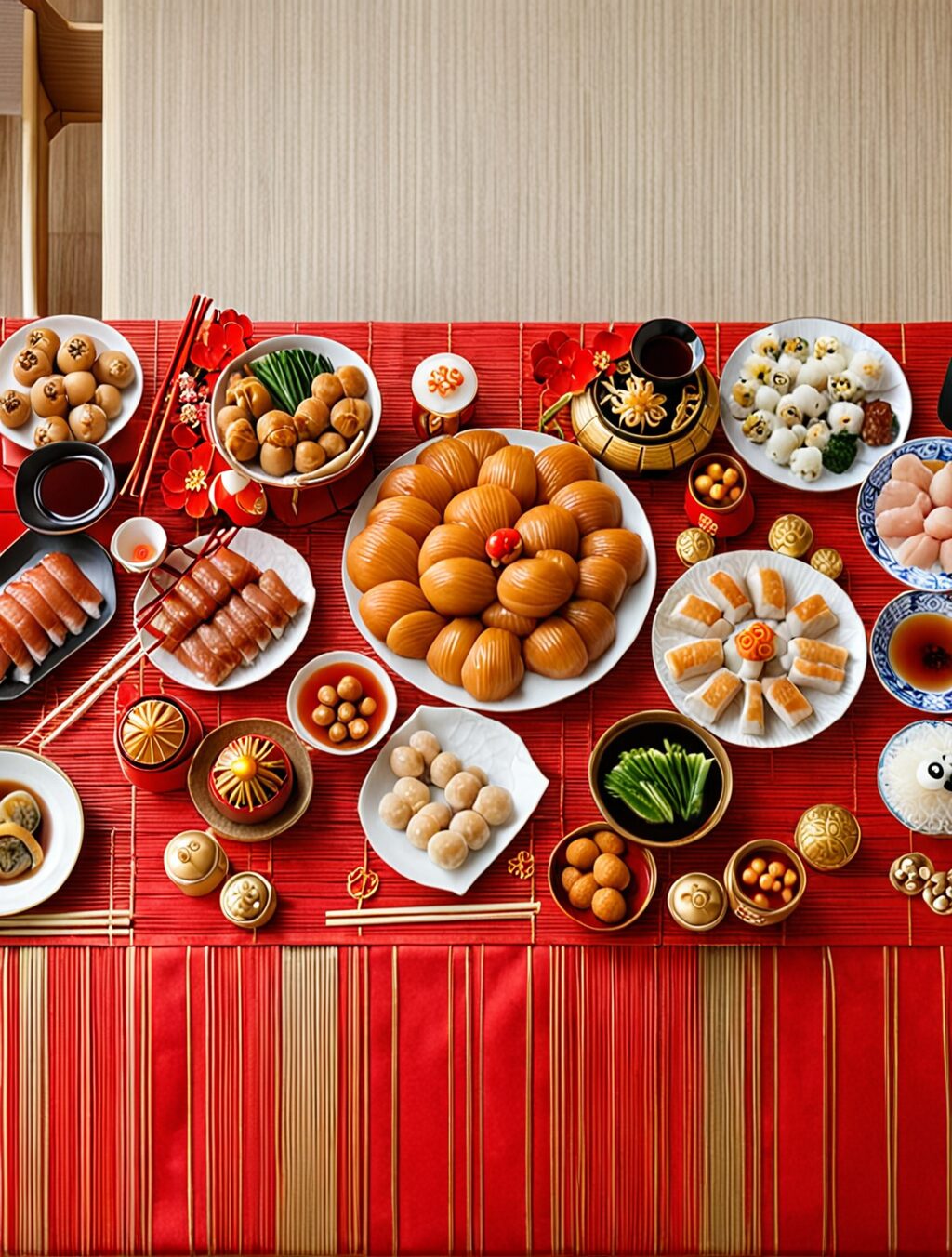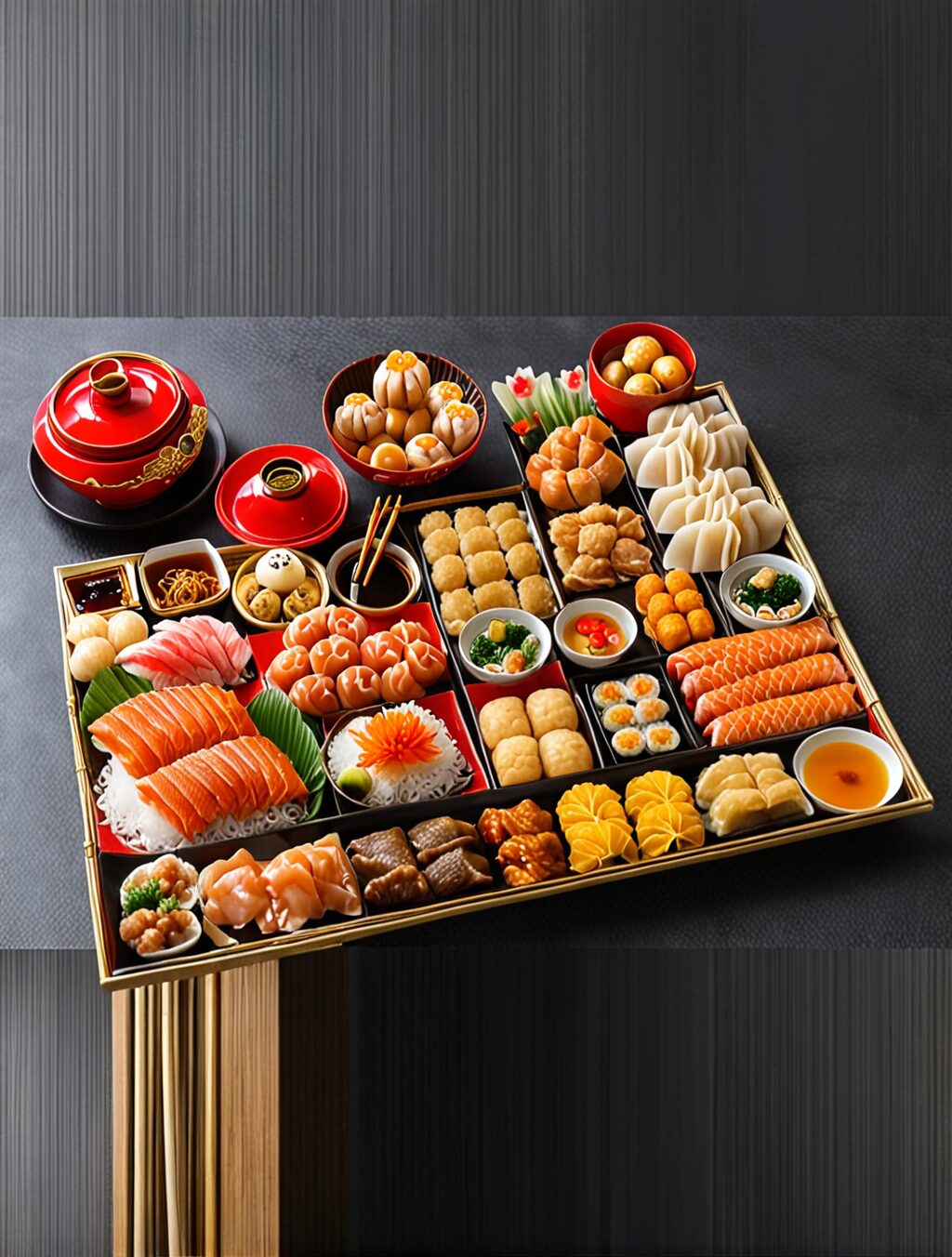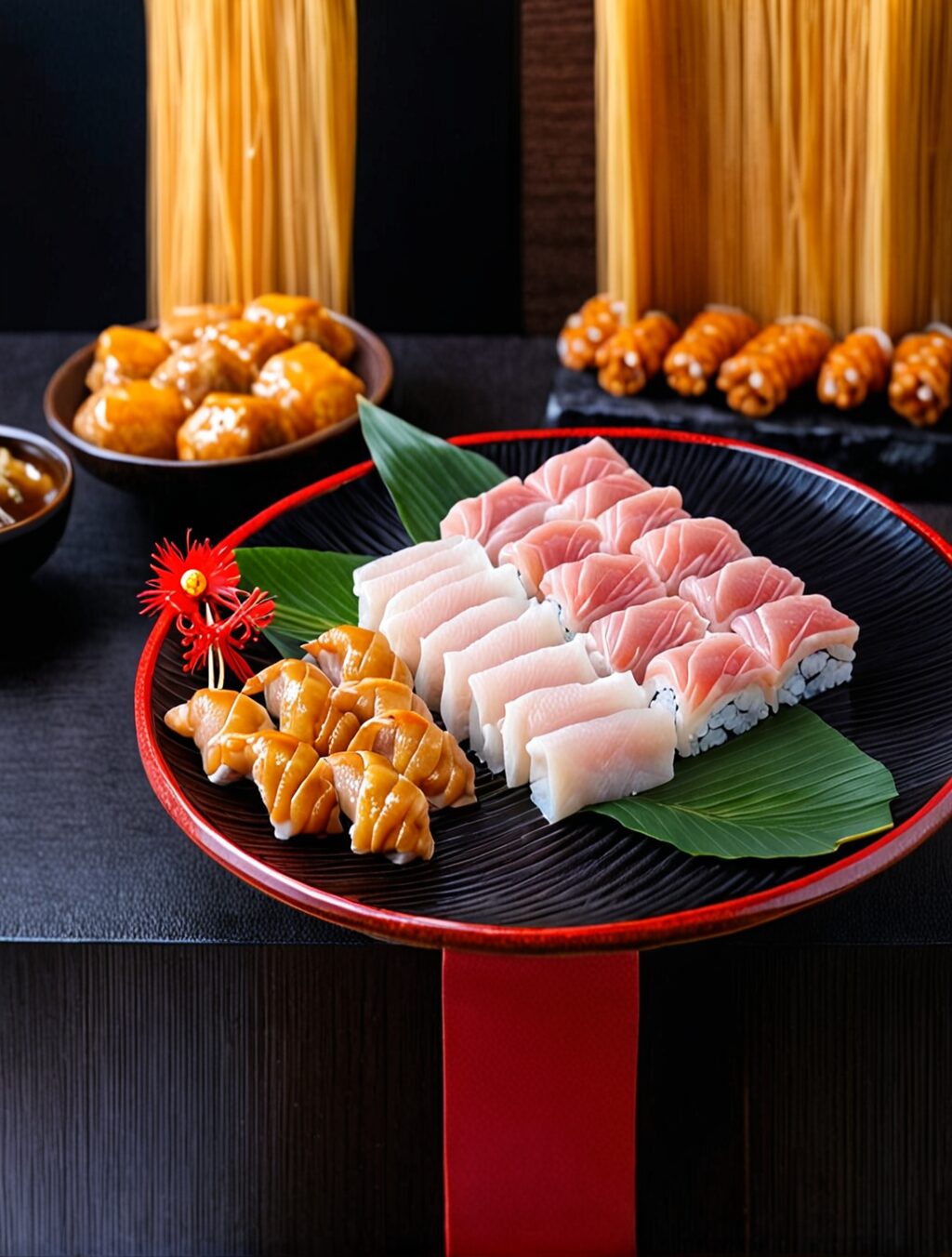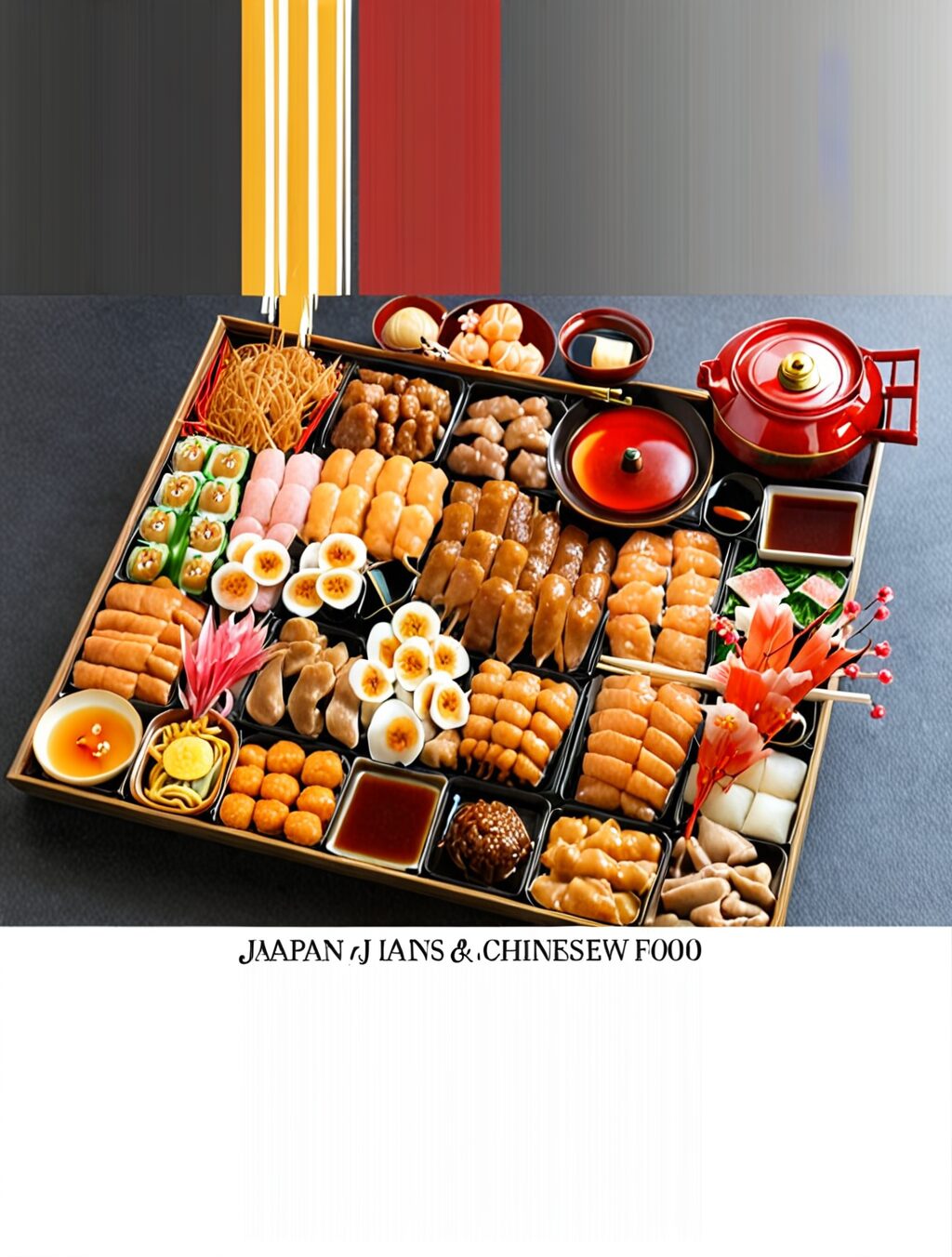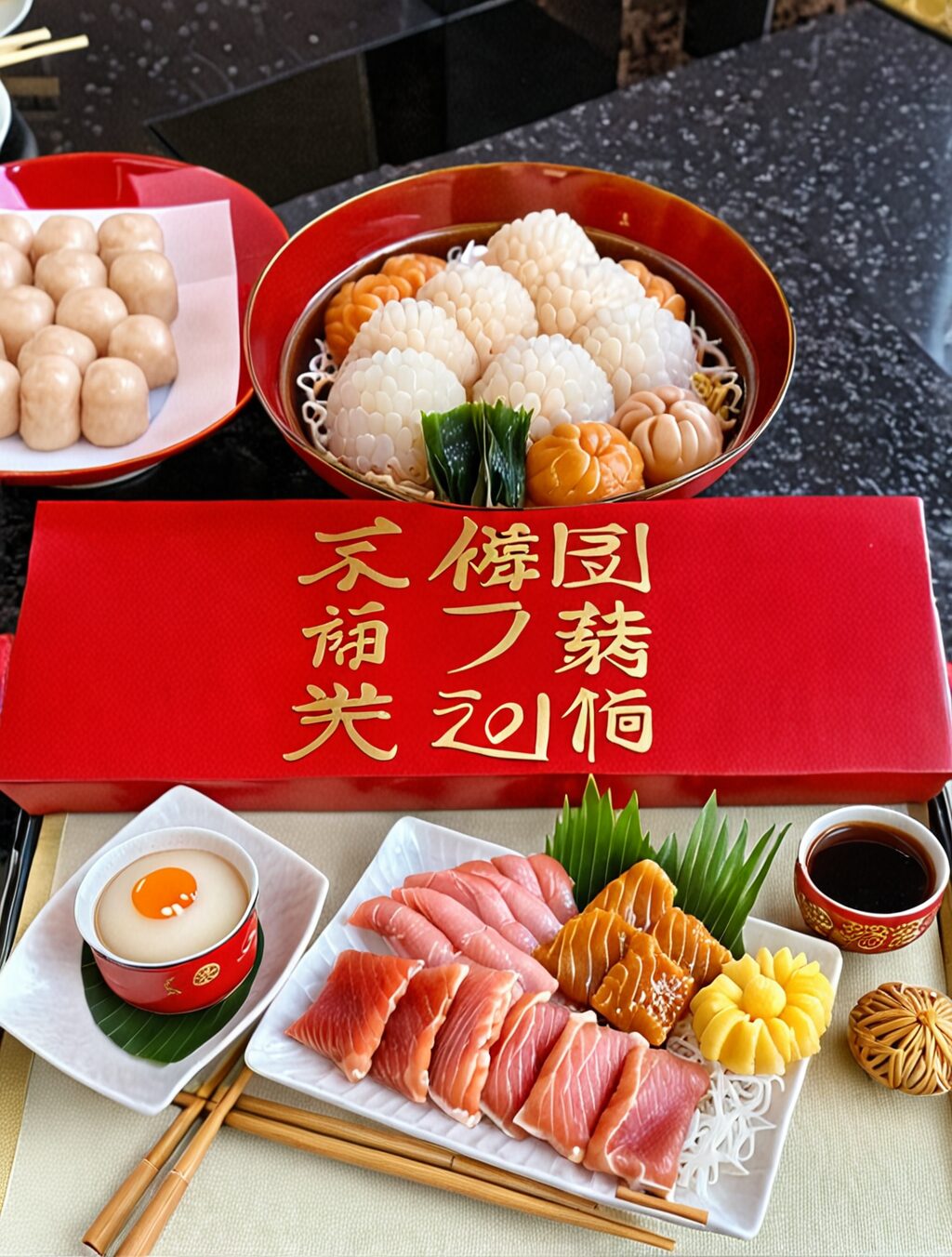New Year’s Day Food Japan
Win a Free Trip to Japan!
Experience cherry blossoms and ancient temples
Welcoming the New Year with family and friends is a special time for many people around the world, and Japan is no exception. Traditional Japanese New Year’s Day food holds cultural significance and is believed to bring good luck, health, and prosperity in the coming year.
From celebratory mochi to symbolic osechi ryori, each dish has a unique meaning and is carefully prepared to ensure a prosperous start to the year. Osechi ryori, a collection of small dishes, is particularly popular and often includes items such as black beans (for good health), herring roe (for fertility), and shrimp (for longevity).
Mochi, a sticky rice cake, is another essential New Year’s Day treat and is often eaten in the form of ozoni, a soup with mochi and vegetables.
Here are some of the most popular Japanese New Year’s Day foods and their meanings:
Osechi Ryori
- Black beans (kuromame): Good health
- Herring roe (kazunoko): Fertility
- Shrimp (ebi): Longevity
- Sweet potato (satsumaimo): Good luck
- Burdock root (gobo): Strength and perseverance
- Lotus root (renkon): Seeing the future
- Daikon radish (daikon): Good luck and fortune
Mochi
- Good luck
- Prosperity
- Strength
FAQs
What is osechi ryori?
Osechi ryori is a collection of small dishes that are eaten on Japanese New Year’s Day. Each dish has a unique meaning and is believed to bring good luck and prosperity in the coming year.
What is mochi?
Mochi is a sticky rice cake that is eaten on Japanese New Year’s Day. It is often eaten in the form of ozoni, a soup with mochi and vegetables.
What are some of the most popular osechi ryori dishes?
Some of the most popular osechi ryori dishes include black beans, herring roe, shrimp, sweet potato, burdock root, lotus root, and daikon radish.
Conclusion
Japanese New Year’s Day food is more than just a meal; it’s a way to celebrate the new year and bring good luck and prosperity. If you’re looking for a way to experience traditional Japanese culture, be sure to try some of these delicious dishes on Japanese New Year’s Day.
